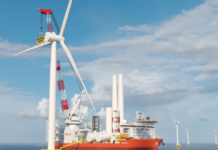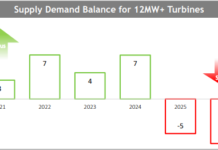Avoiding the Rush Whenever there is a gold rush, the people who make the real money are seldom the gold miners, but rather the suppliers to the miners that come home with the lion’s share of the profits. This is not because there is not an incredible amount of money to be made in mining gold, but because the nature of a gold rush is that too many optimistic miners are encouraged by the early profits of a few to rush to pursue too few opportunities. To many, the rush into solar stocks seems to be just that sort of gold rush. The boom in solar IPOs certainly reminds me of the type of feeding frenzy in which incautious investors are likely to get burned. And we are also seeing some other signs of rampant speculation, where investors are buying poorly managed (or even dishonest) companies with almost the same fervor of well managed ones. There’s little doubt that the future is bright for solar power, but picking solar companies that are going to survive and thrive in that bright future is becoming increasingly difficult in an increasingly crowded field. Things Photovoltaic Makers Need In a gold rush like this one it makes more sense to look at the suppliers. The most obvious suppliers for solar photovolatic (PV) manufacturers are the suppliers of solar grade silicon, from which most PV panels are made. This is what I was doing during last summer, and my favorite silicon supplier, MEMC Electronic Materials (NYSE:WFR) has doubled since then (a much better performance than I was expecting in such a short time.) I have since taken most of my (and my clients’) gains. With many wondering how long the silicon supply shortage will last, and the explosion of companies advancing thin film and concentrating photovolatic technologies to get around the shortage, it seems simpler to get off the silicon roller coaster than to predict when prices will peak or guessing which PV technology will be the most economic in a couple years. Thinking about suppliers to PV manufacturers, we might also think of Spire Corp. (NasdaqGM: SPIR), which supplies solar manufacturing equipment, but that stock is also trading at its 52-week highs, and is up about 50% in the last six months, and has tripled in the last five years, yet is still unprofitable. [UPDATE: Applied Materials (NasdaqGS:AMAT) just won a contract to supply a thin-film production line to Spain’s T-Solar Global. As a supplier to the PV industry, AMAT is worth inclusion in my Alternative Energy Blue Chip Portfolio.] While I’m used to investing in unprofitable companies, I prefer to buy out-of-favor unprofitable companies, rather than ones that have recently had a big run-up. Which brings me to my current favorite supplier to the PV industry: makers of the inverters which convert DC power from PV panels into the AC power used by most of our appliances and the grid. (Small inverters are also used in campers to provide A/C power for portable TVs and other electronics.) Wind turbines also use a similar device called a converter, although wind converters convert the "wild AC" produced by wind turbines into the more domesticated variety used on the grid. Many manufacturers make both PV inverters and wind converters. Many also make power supplies which convert AC to DC power, since these are basically inverters operating in reverse.
North American Stocks Here is a run-down of the major manufacturers traded in the US and Canada: Xantrex (TSX:XTX or Pink Sheets: XARXF): Makes a range of solar inverters from 10 to 225 kW and wind converters for turbines up to 1.5 MW. They are also well established small inverters for cars and campers and other power conversion products. And, unlike many other alternative energy companies, they have had profitable years in 2005 and 2006. This is likely the safest investment among power electronics manufacturers, but, by the same token, has the least possible upside. Xantrex’s stock has been flat for the last couple years (after falling about 40% from its IPO in 2004: not a lot of excitement here, which is exactly when I like to invest. SatCon Technology Corp. (NasdaqCM:SATC) operates in a broad range of power electronics businesses, including grid support and power quality, as well as power conversion. Their wind converters are designed for turbines from 250kW to 2MW and larger. Their PV inverters are designed for systems from 30-500kW in size. SatCon is not currently profitable, and is unlikely to become profitable in the next couple years, but the earnings trends seem to be in the right direction, and they are in the rapidly growing industrial segment of the market. SATC also fell immediately after its IPO in 2002, and has been gyrating rather wildly since then. It’s currently down about 60% from its price at the IPO, and seems to be showing some signs of life. Sustainable Energy Technologies (Toronto Venture: STG; Pink Sheets: STGYF) makes a low voltage inverter suitable for residential sized systems and charging battery backups that they market as having superior efficiency and reliability, which they also market for use with fuel cells. In addition, they sell a vertical axis wind turbine. STG is definitely the most speculative of the three, but also the greenest and purest play on alternative energy. Given its speculative nature, it’s probably best to wait for a pullback before investing. These companies do not have the mark
et to themselves by any means; major competitors include the private German Compaies SMA (Sunnyboy inverters and Windyboy converters) and Fronius. Nevertheless, there is little excitement around the stocks (except for STG which is such a tiny company that the only limit on its stock price is speculators’ greed) and yet they have as much potential to benefit from the growth of Solar as do the much hyped solar stocks.
DISCLOSURE: Tom Konrad and/or his clients have positions in the following stocks mentioned here: WFR, XTX, SATC,STG.
DISCLAIMER: The information and trades provided here are for informational purposes only and are not a solicitation to buy or sell any of these securities. Investing involves substantial risk and you should evaluate your own risk levels before you make any investment. Past results are not an indication of future performance. Please take the time to read the full disclaimer here.








Yes, the inevitable jump to thin film technology is why I fear the PV panel space currently and have also identified Xantrex and SatCon as longer term winners in the space.
While still relatively small, the inverter market in the US is dominated by these 2 players, with SMA making a slight impact.
Recent developments/factors that are encouraging and serve as a catalyst for the PV space going forward are 1) home builders adoption of installing PV systems in new housing developments in California. 2) Installers willingness to finance PV systems in large scale as well as small scale installations. 3) General overall increase in environmental consciousness among corporations and homeowners alike.
Cool. I have been using a small portable Xantrax battery pack with a solar panel to power my shed.